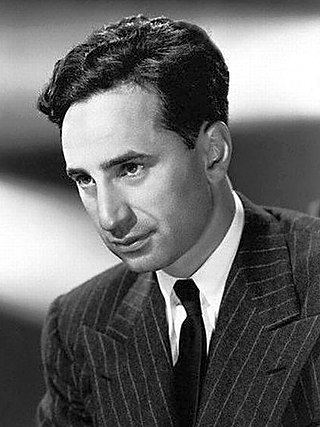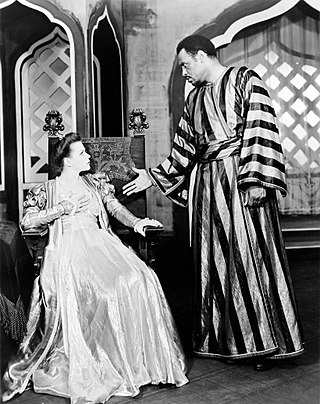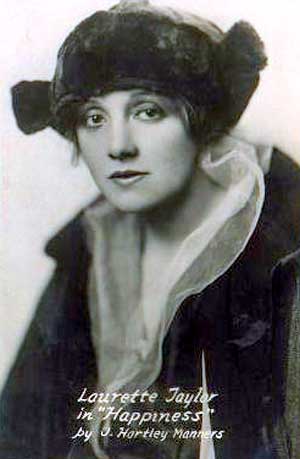Related Research Articles

Peter Sellers was an English actor and comedian. He first came to prominence performing in the BBC Radio comedy series The Goon Show. Sellers featured on a number of hit comic songs, and became known to a worldwide audience through his many film roles, among them Chief Inspector Clouseau in The Pink Panther series.

Simon & Garfunkel were an American folk rock duo consisting of singer-songwriter Paul Simon and singer Art Garfunkel. They rank as one of the best-selling music acts of the 1960s. Their most famous recordings include three US number ones: "The Sound of Silence" (1965) and the two Grammy Record of the Year winners "Mrs. Robinson" (1968) and "Bridge over Troubled Water" (1970). Other successful songs include "The Boxer" (1969), "Cecilia" (1970) and the four 1966 releases "Homeward Bound", "I Am a Rock", "Scarborough Fair/Canticle" and "A Hazy Shade of Winter", as well as the 1968 album track "America".

Elias Kazantzoglou, known as Elia Kazan, was an American film and theatre director, producer, screenwriter and actor, described by The New York Times as "one of the most honored and influential directors in Broadway and Hollywood history".

Method acting, known as The Method, is a range of rehearsal techniques, as formulated by a number of different theatre practitioners, that seeks to encourage sincere and expressive performances through identifying with, understanding, and experiencing a character's inner motivation and emotions. These techniques are built on Stanislavski's system, developed by the Russian actor and director Konstantin Stanislavski and captured in his books An Actor Prepares, Building a Character, and Creating a Role.

Rodney Stephen Steiger was an American actor, noted for his portrayal of offbeat, often volatile and crazed characters. Ranked as "one of Hollywood's most charismatic and dynamic stars", he is closely associated with the art of method acting, embodying the characters he played, which at times led to clashes with directors and co-stars. He starred as Marlon Brando's mobster brother Charley in On the Waterfront (1954), the title character Sol Nazerman in The Pawnbroker (1964) which won him the Silver Bear for Best Actor, and as police chief Bill Gillespie opposite Sidney Poitier in the film In the Heat of the Night (1967) which won him the Academy Award for Best Actor.

The Other is a 1972 American horror psychological thriller film directed by Robert Mulligan, adapted for film by Thomas Tryon from his 1971 novel of the same name. It stars Uta Hagen, Diana Muldaur, and twins Chris and Martin Udvarnoky, with Victor French, John Ritter, and Jenny Sullivan in supporting roles.

In Christianity, salvation is the saving of human beings from sin and its consequences—which include death and separation from God—by Christ's death and resurrection, and the justification entailed by this salvation.

Uta Thyra Hagen was a German-American actress and theatre practitioner. She originated the role of Martha in the 1962 Broadway premiere of Who's Afraid of Virginia Woolf? by Edward Albee, who called her "a profoundly truthful actress." Because Hagen was on the Hollywood blacklist, in part because of her association with Paul Robeson, her film opportunities dwindled and she focused her career on New York theatre.

Anna Marie "Patty" Duke was an American actress and mental health advocate. Over the course of her acting career, she was the recipient of an Academy Award, two Golden Globe Awards, three Primetime Emmy Awards, and a star on the Hollywood Walk of Fame.

Harold Edgar Clurman was an American theatre director and drama critic. In 2003, he was named one of the most influential figures in U.S. theater by PBS. He was one of the three founders of New York City's Group Theatre (1931–1941). He directed more than 40 plays in his career and, during the 1950s, was nominated for a Tony Award as director for several productions. In addition to his directing career, he was drama critic for The New Republic (1948–1952) and The Nation (1953–1980), helping shape American theater by writing about it. Clurman wrote seven books about the theatre, including his memoir The Fervent Years: The Group Theatre and the Thirties (1961).

Laurette Taylor was an American stage and silent film star who is particularly well known for originating the role of Amanda Wingfield in the first production of Tennessee Williams's play The Glass Menagerie.
Respect for Acting by actress and teacher Uta Hagen is a textbook for use in acting classes. Hagen's instructions and examples guide the user through practical problems such as: "How do I talk to the audience?" and "How do I stay fresh in a long run?". She advocates the actor's use of substitution in informing and shaping the actions of the character the actor is playing.

Collective mental state is generally a literary or legal term, mostly used in sociology and philosophy, to refer to the condition of someone's being-state when around others. An assessment of a collective mental state includes a description of thought processes, memory, emotions, mood, cognitive state, and energy levels, including the meta overlay of interactions between individuals.

The "art of representation" is a critical term used by the seminal Russian theatre practitioner Konstantin Stanislavski to describe a method of acting. It comes from his acting manual An Actor Prepares (1936). Stanislavski defines his own approach to acting as "experiencing the role" and contrasts it with the "art of representation". It is on the basis of this formulation that the American Method acting teacher Uta Hagen defines her recommended Stanislavskian approach as 'presentational' acting, as opposed to 'representational' acting. This use, however, directly contradicts mainstream critical use of these terms. Despite the distinction, Stanislavskian theatre, in which actors 'experience' their roles, remains 'representational' in the broader critical sense.
"Speak the speech" is a famous speech from Shakespeare's Hamlet (1601). In it, Hamlet offers directions and advice to a group of actors whom he has enlisted to play for the court of Denmark.
Scene study is a technique used to teach acting. One or more actors perform a dramatic scene and are then offered feedback from teachers, classmates, or each other.

Naturalism is a movement in European drama and theatre that developed in the late 19th and early 20th centuries. It refers to theatre that attempts to create an illusion of reality through a range of dramatic and theatrical strategies. Interest in naturalism especially flourished with the French playwrights of the time, but the most successful example is Strindberg's play Miss Julie, which was written with the intention to abide by both his own particular version of naturalism, and also the version described by the French novelist and literary theoretician, Emile Zola.

Presentational acting and the related representational acting are opposing ways of sustaining the actor–audience relationship. With presentational acting, the actor acknowledges the audience. With representational acting, the audience is studiously ignored and treated as voyeurs.
A Challenge for the Actor is a bestselling acting textbook by the actress and teacher Uta Hagen, used in many acting classes. Taking the concept of "substitution" from her previous book, Respect for Acting, she renamed it "transference".
References
- ↑ Uta Hagen (4 May 2009). Respect for Acting. John Wiley & Sons. pp. 13–. ISBN 978-0-470-73018-8.
- ↑ Uta Hagen (4 May 2009). Respect for Acting. John Wiley & Sons. pp. 32–. ISBN 978-0-470-73018-8.
- ↑ Uta Hagen (4 May 2009). Respect for Acting. John Wiley & Sons. pp. 38–. ISBN 978-0-470-73018-8.
- ↑ Uta Hagen (4 May 2009). Respect for Acting. John Wiley & Sons. pp. 42–. ISBN 978-0-470-73018-8.